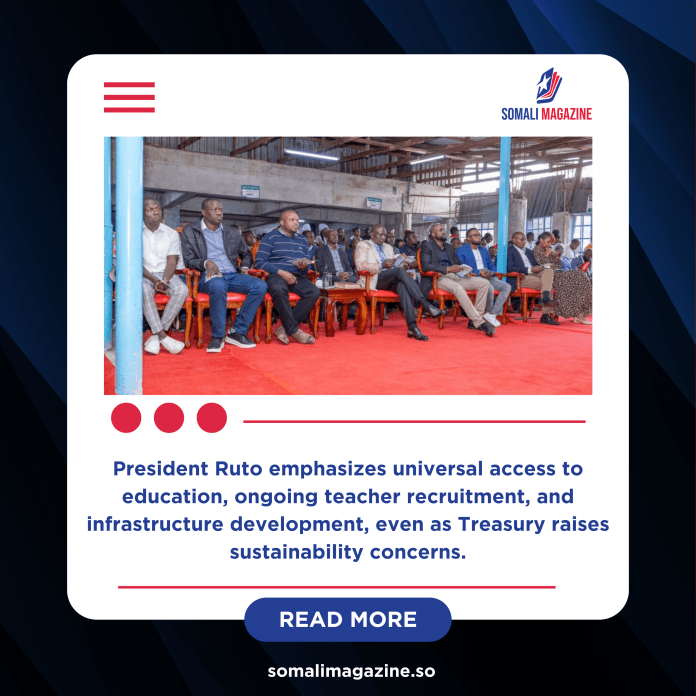Facebook Twitter (X) Instagram Somali Magazine - People's Magazine
President William Ruto has once again emphasized his government’s dedication to providing free, accessible, and quality education for all Kenyan children. Speaking during a Sunday church service at ACK St Martin’s Light Industries Church in Kariobangi, Nairobi, the President described education as “the greatest gift a society can give to its young people.”
Ruto highlighted various measures his administration has taken over the past two years to improve the education system in Kenya. These include increasing access to education, improving infrastructure, hiring more teachers, and ensuring long-term stability in the education sector.
“Free primary education is the right of every Kenyan,” the President said, noting that his government is focused on making education truly universal and accessible. He pointed out that many new classrooms have been built, especially in urban areas like Nairobi, to reduce overcrowding in schools.
To further support education, Ruto announced that over 70,000 teachers have been hired during his presidency, with plans to recruit an additional 24,000 teachers by early next year. This move, he explained, is meant to address the growing demand for qualified educators and to improve the teacher-student ratio across the country.
The President also mentioned a recent Collective Bargaining Agreement (CBA) signed with teachers, which will be in place until 2029. This agreement is intended to ensure long-term labor peace in the education sector and prevent the frequent strikes that have disrupted learning in the past.
“I want to assure every Kenyan that we will not compromise on the access, quality, or relevance of education,” Ruto said. “We are committed to making education affordable, inclusive, and aligned with our national development goals.”
His remarks followed similar sentiments expressed by Deputy President Kithure Kindiki a day earlier. Kindiki assured the public that the government has no intention of reducing funding for free primary and secondary education. He emphasized that the Kenya Kwanza Administration is committed to building on the progress already made in the education sector, particularly in terms of teacher recruitment and increased budget allocations.
However, recent comments by Treasury Cabinet Secretary John Mbadi have raised concerns and sparked public debate. Speaking before a Parliamentary committee last Thursday, Mbadi stated that the government can no longer fully fund free primary and secondary education due to budgetary constraints. He warned that the cost of fully supporting every learner has become too high for the government to sustain, and hinted that parents might soon need to contribute more to support their children’s education.
Mbadi’s remarks triggered widespread concern, prompting him to issue a clarification the next day. He maintained that while education remains a top priority for the government, the reality is that Kenya’s current financial resources cannot fully cover the cost of educating every child. He also criticized some leaders for failing to acknowledge this financial reality.
Despite these challenges, the President insisted that his administration remains focused on ensuring that no child is left behind. He reassured Kenyans that the government is working to balance financial realities with the constitutional right to free and quality education.
The conversation around education funding comes at a time when the country is grappling with economic challenges, forcing the government to make tough budget decisions. Still, President Ruto emphasized that his administration will continue to prioritize education as a critical pillar of Kenya’s future.

